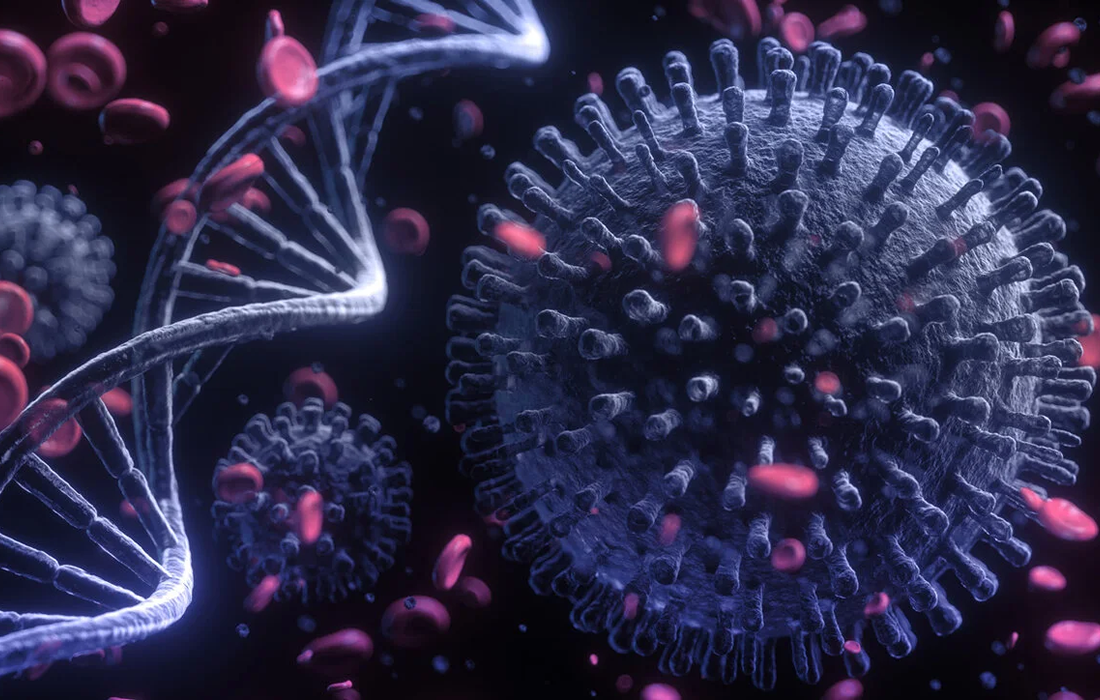COVID-19, Regenerative Medicine News and General Information
Why Does a Virus Mutate?
What is a virus ‘strain’?
When scientists use the word strain, they are referring to a genetically distinct virus lineage, distinguishable by one or more mutations from another strain. Strains may or may not be biologically (functionally) distinguishable from one another and some virologists use the term strain only for the former. Two strains would be biologically different if they elicited different responses from the human immune system, or if they varied in their transmission characteristics.
What are viral mutations?
When a virus infects a cell and begins making copies of itself, it starts by replicating its genetic information. For example for the COVID-19 virus is encoded in an RNA molecule. More complex organisms have a variety of “proof-reading” mechanisms to ensure high-fidelity replication; however, these are less developed in RNA viruses where the process is particularly error-prone, leading to a relatively rapid accumulation of mutations over time. SARS-CoV-2 does carry some proof-reading enzymes and its mutation rate is lower than many other RNA viruses, such as influenza virus, norovirus, and human immunodeficiency virus (HIV).
Viruses have the remarkable capacity to adapt to new hosts and environments. This is highly dependent on their ability to generate de novo diversity in a short period of time. Rates of spontaneous mutation vary amply among viruses. RNA viruses, like HIV or influenza virus, mutate faster than DNA viruses.
The mutations occur when there is a change to the genetic material, either the DNA or RNA, from the original normal or “wild type” version of the genome of a particular organism or biological entity. The mutation could be entirely novel, or it could have occurred before.
In SARS-CoV-2 coronavirus variants of concern (VOC) have arisen due to mutations that have caused changes to the spike protein of the virus. This is the part of the virus that attaches itself to the host ––in this case the human ––cell.
Why is it important to track viral mutations?
Mutations in the virus are being actively monitored by extensive sequencing of viral genomes isolated from patients across the world. This information will allow researchers to track new variants of the virus with unique genome mutations, improve their understanding of virus transmission, and quickly determine whether new mutations are changing the properties of the virus.
At present, there is no evidence that any of the mutations that have been observed in SARS-CoV-2 have affected the viral transmissibility of the disease in humans. However, future mutations might arise that have negative (or positive) effects on human disease prevalence and health outcomes, and so genetic monitoring and biological characterization of new mutations is a high research priority. Because of the significance of such findings, careful consideration of the evidence prior to publication is critical.
Since the COVID-19 pandemic started, the virus has mutated. As a result, different variants are now circulating worldwide. It is vital to keep track of these mutations and resulting new variants to assess the ongoing risk to public health.
It is important to mention that some mutations may cause changes that do not pose an immediate threat in terms of increased pathogenicity of an organism and that in fact, some mutations may be deleterious to the pathogen itself, and of course beneficial for public health and the control of the current pandemic.
Sources:
Dr. Nicola Williams, Ph.D. (2021, Dec 1). What is a Viral Mutation? News-Medical. Retrieved from:
https://www.news-medical.net/health/What-is-a-Viral-Mutation.aspx
Sanjuán R, Domingo-Calap P. Mechanisms of viral mutation. Cell Mol Life Sci. 2016;73(23):4433-4448. doi:10.1007/s00018-016-2299-6
Bollinger, R. et al. (2021) Covid variants: what you should know. Online:
https://www.hopkinsmedicine.org/health/conditions-and-diseases/coronavirus/a-new-strain-of-coronavirus-what-you-should-know.
Kellam, P. (2021) SARS-Cov-2 variants: how do they arise & do we need to worry about them? The Leeds Philosophical and Literary Society. Public (virtual) lecture, 22 April 2021. Online:
https://www.leedsphilandlit.org.uk/shop/sars-cov-2-variants-how-do-they-arise-do-we-need-to-worry-about-them/.
Roberts, M. (2021) What is the Delta variant? Online:
https://www.bbc.co.uk/news/health-55659820.
UKRI (2020) Are there different strains of the SARS-Cov-2 virus circulating? Online:
https://coronavirusexplained.ukri.org/en/article/cad0013/.
Image from:

